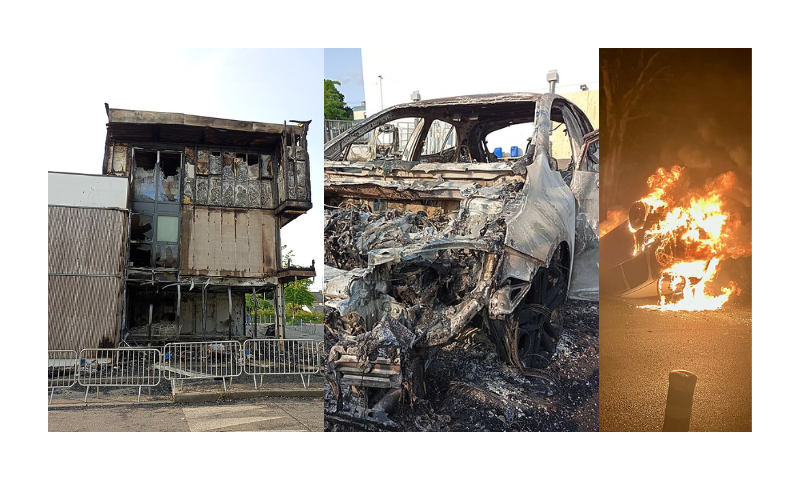Dominic Green
WSJ, July 4, 2023
“Islam may now be the established religion of the banlieues, and ranting imams may be racking up the hits on TikTok as they celebrate the coming conquest of France, but Islam is also a secondary phenomenon in these riots.”
As the riots in France abate, the reckoning starts. President Emmanuel Macron blames the copycat contagions of social media and videogames. That’s shooting the messenger. The message itself lies in the incident that sparked the riots. A deep-rooted dynamic of disorder has set France’s police against teenagers and young men from immigrant backgrounds. The law-abiding majority now faces the consequences of the state’s long failure to enforce the law.
On June 28 in Nanterre, just west of Paris, two police officers stopped Nahel Merzouk, a 17-year-old driving a car with Polish license plates. When he attempted to accelerate away from the police during their interaction, one of the officers shot Merzouk. Prosecutors have charged the officer with “voluntary homicide by a person in authority.” It’s only the latest in a series of police-brutality cases involving white officers and nonwhite youths.
Merzouk had no criminal convictions, but not for lack of effort. His judicial file, which happened to reach France’s Europe 1 channel, is said to contain 15 items, including driving with false license plates, driving without insurance, drug dealing and possession, “rebellion against police officers,” and several charges in juvenile courts for resisting arrest. He didn’t deserve to die. The law-abiding, hard-working majority in the outlying housing projects known as banlieues don’t deserve to live amid endemic crime and violence.
Though France’s historical circumstances are unique, there is nothing uniquely French about the country’s present discontent. Western European societies were historically cohesive and “high-trust” societies. High immigration rates and a systemic failure to integrate the children of immigrants have in recent decades balkanized them into low-trust, high-crime societies, especially in the cities. An underclass culture of dependency and macho criminality contributes to high crime rates and increasingly violent interactions between youth and police. . … [To read the full article, click here]


